Haitian Earthquake: 5 years on
School days
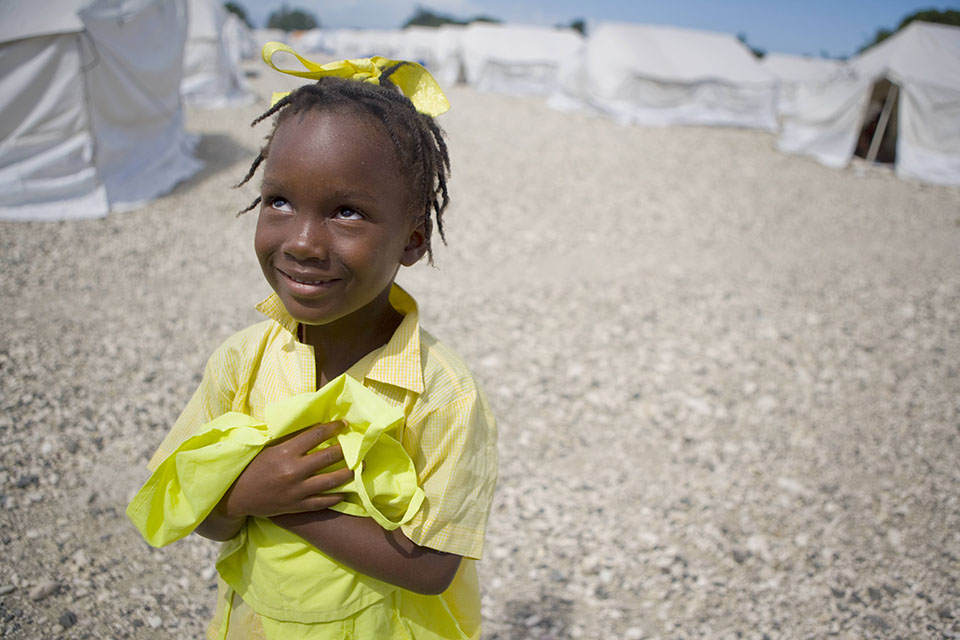
Martine Jozef’s mother expressed her gratitude in the first year following the earthquake, “With the financial support the American Red Cross gave us, I am sending her back to school again. Thank you.”
Soccer: kickin' It
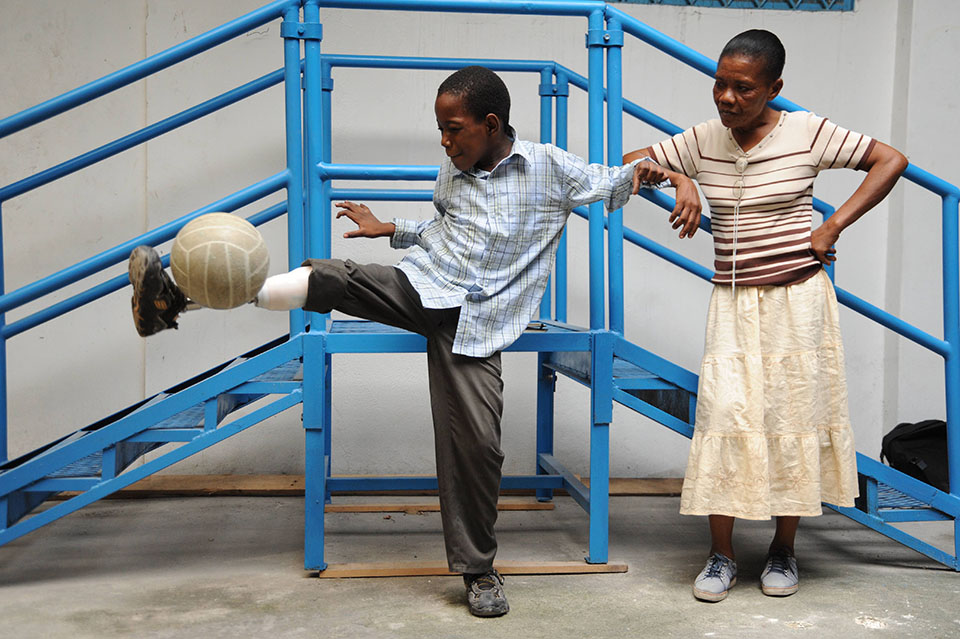
Ten year-old Jordanie Derulus was trapped in the rubble of his house for two days following the earthquake. Once out of the rubble, Jordanie was brought to a hospital where doctors were forced to remove his right leg. While Jordanie never lost faith he would walk again, the leg that he has received from a prosthetics clinic funded by the global Red Cross network has allowed him to get back to normal. “I can kick a soccer ball again, and walk,” he explained, “it’s a wonderful thing.”
New neighborhoods
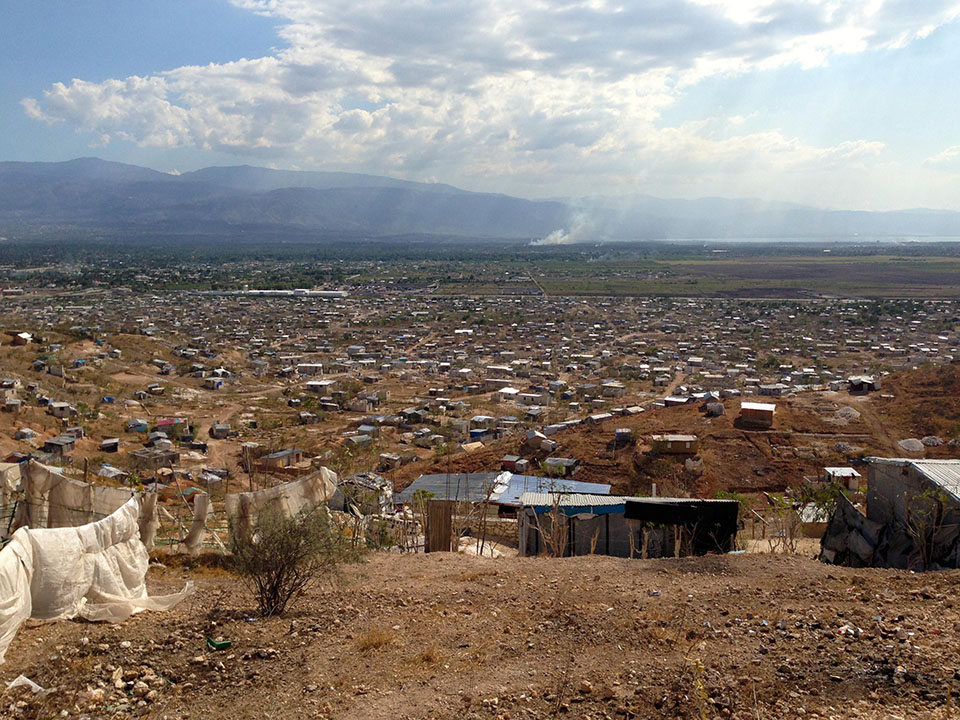
After the earthquake, many Haitian families decided to move out of Port-au-Prince and settle in Canaan, a rapidly emerging city about 30 minutes’ drive from the capital city. The American Red Cross is working to make sure Canaan’s development is carried out in a safe, healthy, and sustainable way. We are supporting families by investing in safe housing and livelihood support, basic infrastructure, disaster preparedness, and other programs that ensure residents are resilient to any disasters that may come their way.
Mobile health clinics
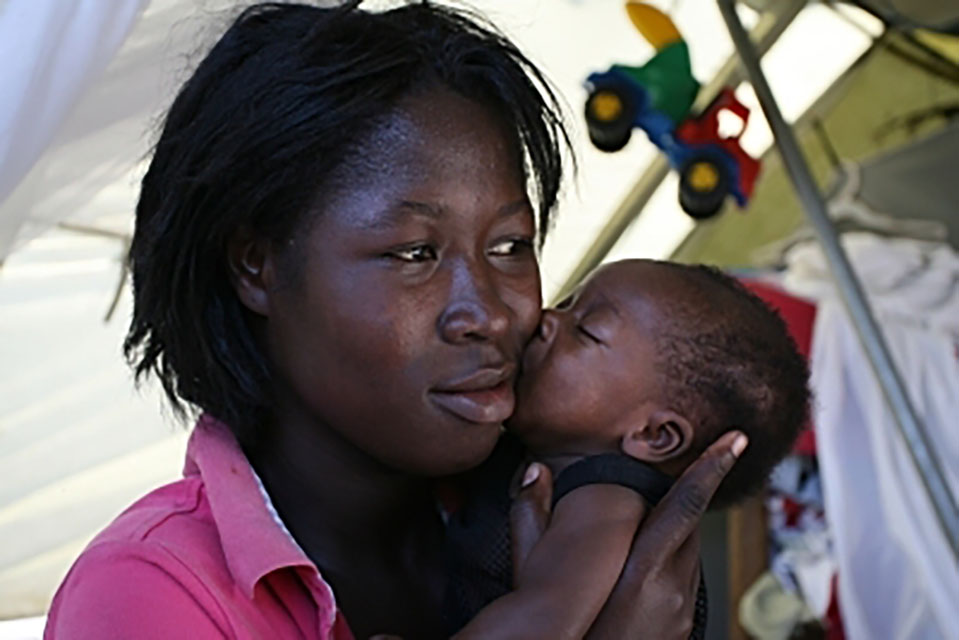
The Red Cross funds and supports HOPE, a Haitian organization whose medical professionals trek over five miles, on foot, to run mobile medical clinics in hard-to-reach rural communities. In Borgne, the number of women attending prenatal clinics is far below the number of pregnant women who live there. In order to help pregnant women, HOPE also runs mothers’ clubs: weekly group meetings in which 20-30 women discuss pre- and post-natal and infant health, family planning, nutrition and cholera prevention.
Father & daughter
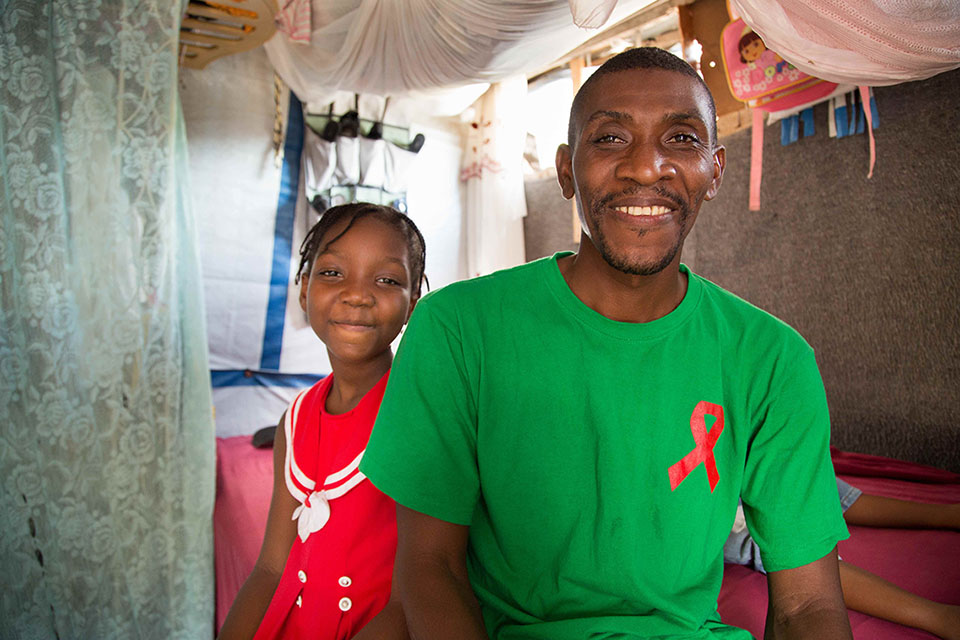
Archelle Clara, 8, and her father, Lionel Vilsaint sit together at their home in the neighborhood of Carrefour-Feuilles. "I have received a lot of training from the American Red Cross in the past few years. If an emergency occurs, I know how to intervene," said her father Lionel Vilsaint. "My family sleeps under the mosquito net every night. It’s rainy season right now, so there is much to be aware of." In addition to improvements to infrastructure, health and livelihoods in this neighborhood, the American Red Cross is preparing residents for any disasters that may come their way.
Better bathrooms
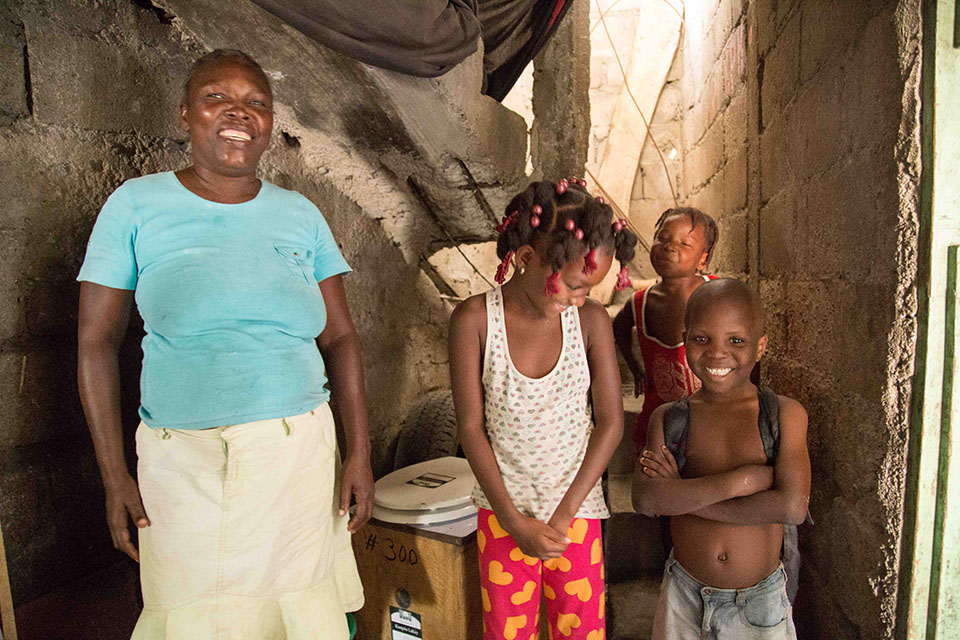
The American Red Cross is building eco-friendly toilets alongside SOIL Haiti, so that families have access to safe & dignified sanitation. After use, people pour a mix of ground peanut shells and sugarcane splinters into the dry toilets. Waste is collected and turned into compost! Access to safe water and sanitation can prevent waterborne illness, keep girls in school, reduce gender-based violence, and so much more. The American Red Cross is funding and working with partner SOIL in northern Haiti to install 200 household or communal toilets and to expand the capacity of their composting waste treatment facility.
A new home
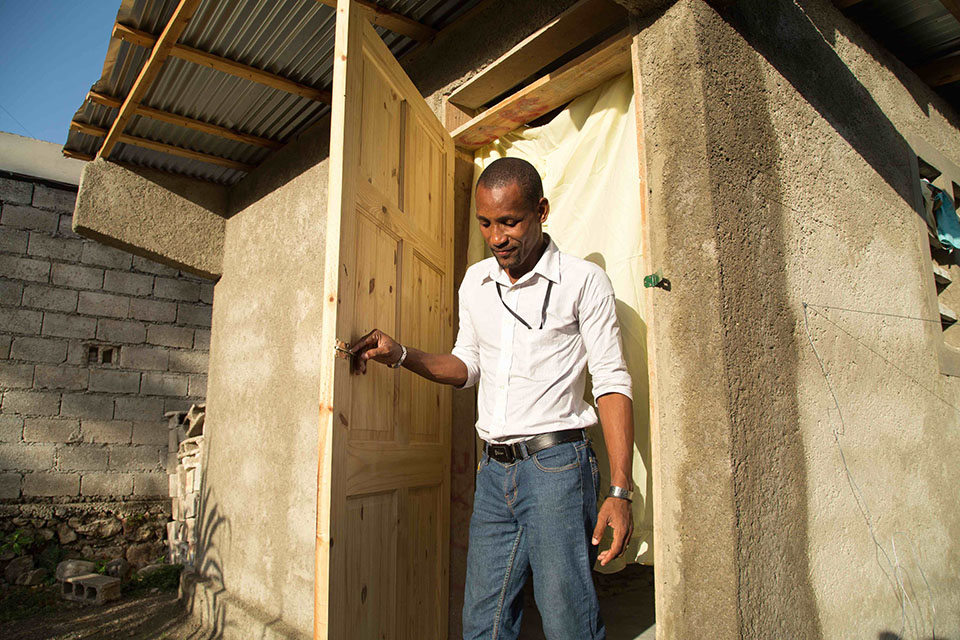
Junior Ducasse opens the door of his home in August 2014. Junior was living in one of the many camps that dotted Port-au-Prince after the 2010 earthquake, but recently moved to a safe, earthquake-resistant home. "I was in a camp, and I was really tired of it. I thought I was tired of life," he recalls. "When I was in the camp, I was uneasy. Sometimes my things got stolen. I worked. I had a lot of problems, but since I came here, I feel very relaxed." A program sponsored by the American Red Cross, in partnership with CARE, is helping homeowners repair and expand their houses, as well as making them more disaster-resistant. The homeowners who benefit from this program agree to provide a free room to former camp residents for 18 to 24 months, offering them a safe place to live as they rebuild their lives.
Entrepreneurial spirit
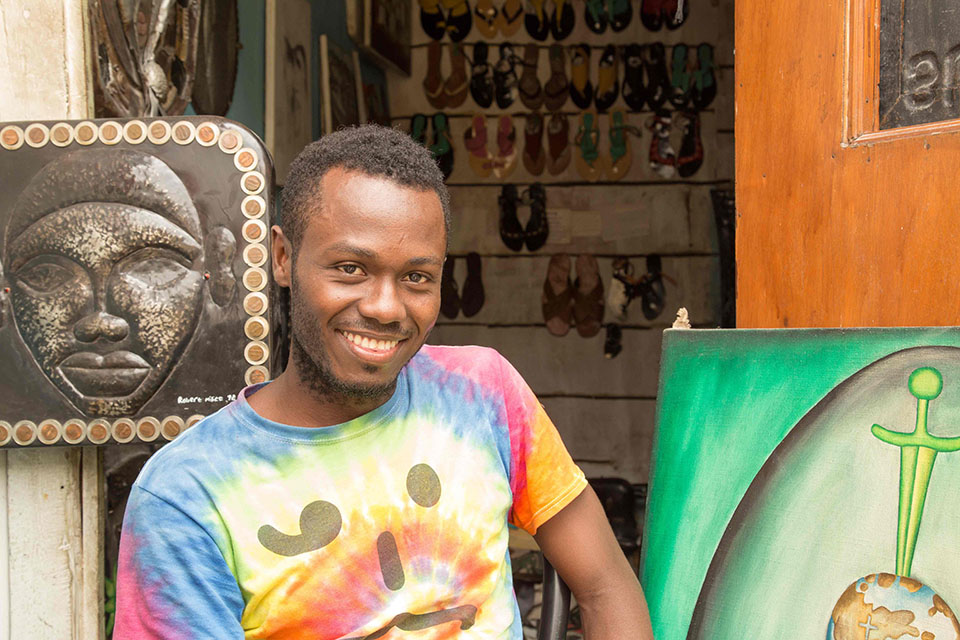
Artisan Dominique Milias is one of the 75 entrepreneurs who are honing their business and marketing skills through the American Red Cross. These business owners learn how to define their market, assess their advantage over the competition, and reach out to new customers. The program is part of an American Red Cross initiative to improve economic opportunities in Carrefour-Feuilles—a community badly damaged by the 2010 earthquake.
Giving birth
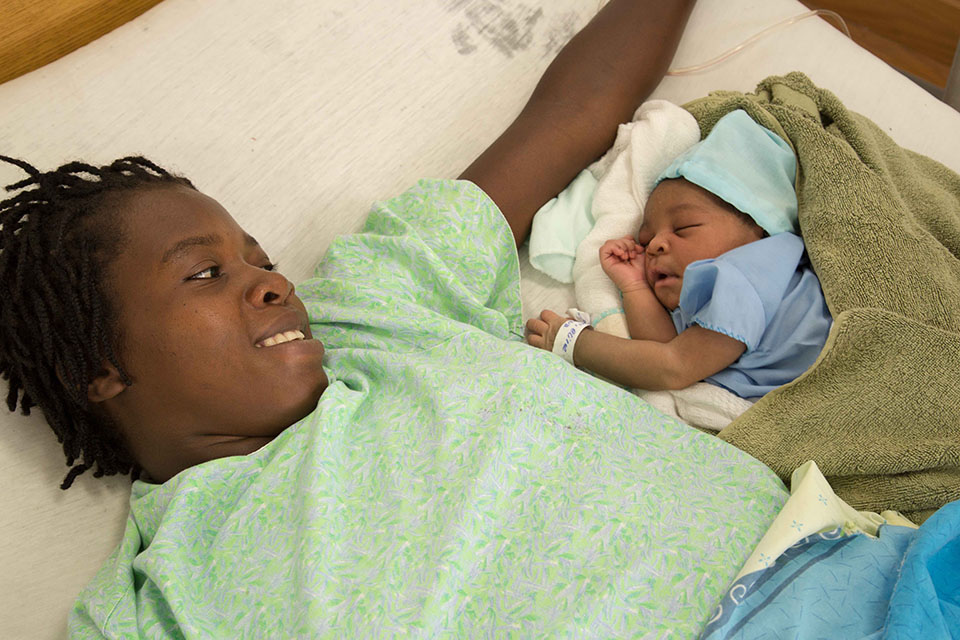
Ever since she found out she was pregnant, Elièse Louis has been coming from her neighborhood of Bel Air to Mirebalais Hospital to receive ongoing prenatal care. In June 2014, she gave birth to a beautiful baby boy, Lovensky, who is snuggled next to her in the maternity ward. “They’ve taken very good care of me,” she said. “The hospital offers a very good service. I pray for it to never change.” The American Red Cross provided $5.5 million for the construction, equipment, and opening of this hospital, run by Partners in Health and the Ministry of Public Health and Population.
Solar-powered lights
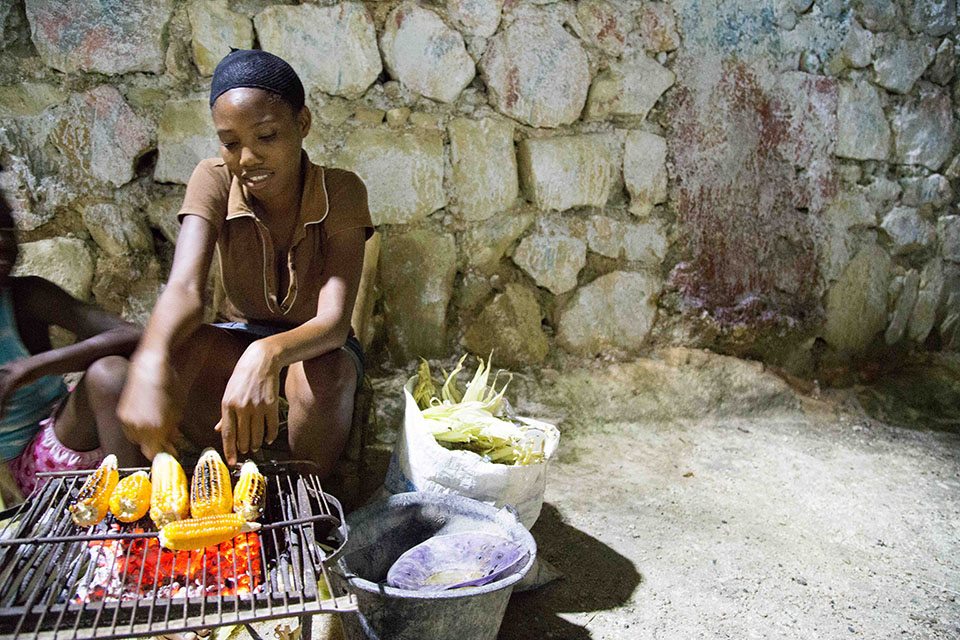
Landy used to stay home after sunset, too afraid to walk around or run errands in the darkness. But when the American Red Cross installed solar streetlights in her neighborhood, everything changed. Landy now sells grilled corn under the streetlights without fearing for her safety. Her female friends agree that they feel safer being out alone in the evenings and are less worried about falling on the rocky and uneven paths. The streetlights can prevent crime, reduce gender-based violence, allow kids to do their homework after dark, and extend the hours during which residents can walk and conduct business in the neighborhood.
Haitian Red Cross
The Haitian Red Cross has been at the forefront of earthquake disaster relief since day one. Five years down the road, the American Red Cross is helping Haitians recover from the disaster, while building the capacity of Haitian Red Cross branches and local communities so they can plan for and respond to future emergencies on their own.